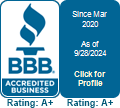
6 Essential Questions to Consider Before Using Savings to Pay Off Debt
In the journey toward financial freedom, one of the common dilemmas individuals face is whether to use their savings to pay off debt. While reducing debt is a commendable goal, some choose to maintain their savings accounts because they require the security they provide. To ensure your choice is the best for your financial and mental well-being, ask yourself the following questions.
1. What Type of Debt Are You Dealing With?
Not all debts are created equal. It is crucial to distinguish between high-interest, unsecured debts (like credit card debt) and low-interest, tax-deductible debts (such as a mortgage).
Using your savings to settle low-interest debts like a mortgage and federal student loans is most likely doing more harm than good. However, you may find it advantageous to prioritize paying off high-interest debts such as credit cards with your savings, where interest rates are an average of 16% and can reach an astounding rate of 36%. The cost of interest will outweigh any potential returns from savings and be a financial burden.
2. Do You Have An Emergency Fund In Place?
Before allocating your savings to debt repayment, ensure you have a robust emergency fund. As life is unpredictable, unforeseen costs can come up at any time. Aim to set aside three to six months of living expenses in an easily accessible account.
You should consider other options if you are depleting that fund to pay off debt and going past the three-month mark. However, if your emergency fund is well-stocked, you can take money out until you reach the three-month limit. By having a financial safety net, you can avoid going further into debt in case of emergencies.
3. What Are Your Savings Goals?
Consider your long-term financial goals before using savings to pay off debt. Are you putting money aside for a down payment on a property? Funding for your child’s education?
Depleting your savings might hinder your ability to achieve these objectives. However, your short-term savings may pay off in the long run if debt reduction raises your chances of being approved for a low-interest loan.
Using your retirement funds to settle debt is something else you should try to avoid. Your savings are supposed to support your desired post-retirement lifestyle. You are practically taking that money away from yourself by spending it now. Remember the significant penalty for taking early withdrawals of the funds as well.
4. Can You Negotiate Better Terms On Your Debt?
Before dipping into your savings, explore options to negotiate better terms on your present debt. Contact your creditors to discuss potential interest rate reductions, debt consolidation, or restructuring. Many creditors are willing to work with borrowers to create more manageable repayment plans. By negotiating improved terms, you may be able to pay off your debt without depleting your savings entirely.
5. Do You Anticipate Receiving Additional Funding Shortly?
Have you been given a raise? Are you in for a sizable bonus? Are you taking up a side gig? Or are you getting a tax refund soon?
Using your savings to pay off debt can be beneficial in such situations. However, if you choose this course of action, confirm that money is unquestionably on its way and replenish your savings as soon as you receive the additional funds.
6. What Is The Potential Impact On Your Financial Stability?
Consider the broader implications of using your savings to pay off debt. If doing so would leave you financially vulnerable or hinder your ability to meet regular expenses, it may not be the best course of action. Maintaining financial stability is crucial for long-term well-being. Evaluate the impact on your overall financial health before making a decision.
Conclusion
While paying off debt is a commendable goal, it is essential to decide with careful consideration. By asking yourself these six crucial questions, you can make an informed choice that aligns with your financial goals and priorities. Striking a balance between debt repayments and preserving financial stability is the key to achieving lasting financial success.


